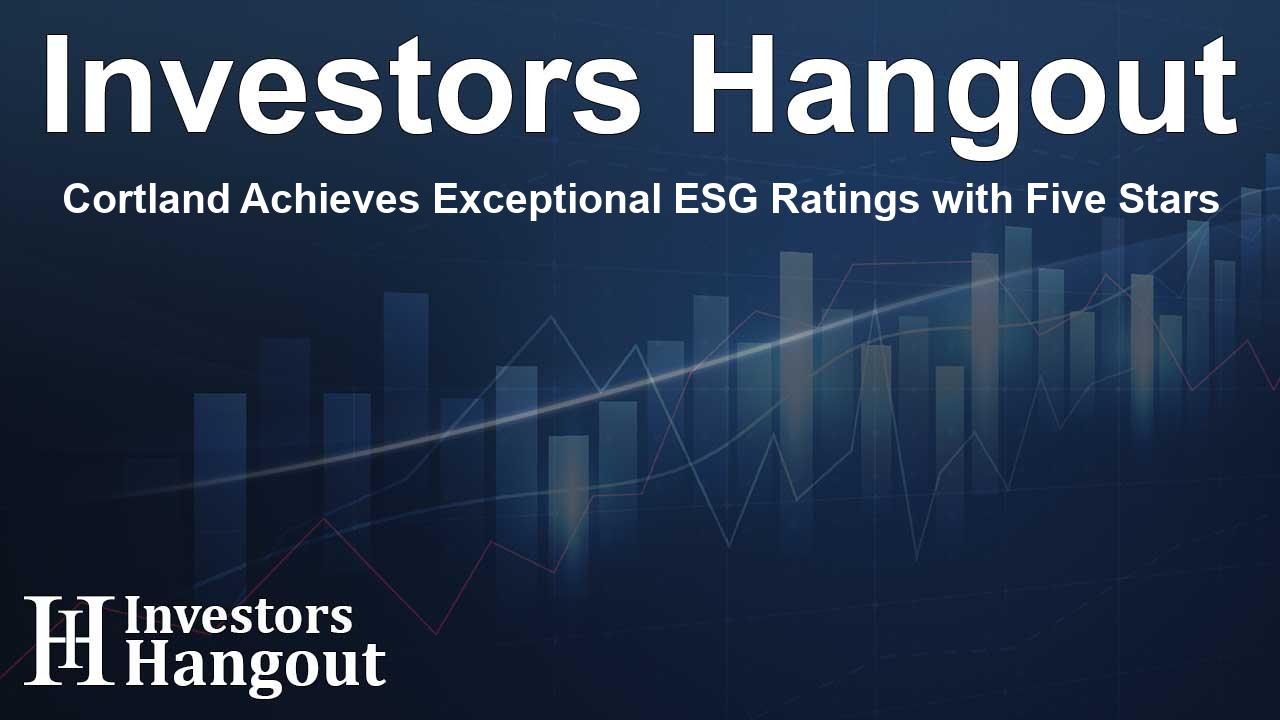Cortland Achieves Exceptional ESG Ratings with Five Stars

Cortland Achieves Exceptional ESG Ratings
In an impressive move towards sustainability, Cortland, a prominent multifamily real estate investment and management company, has received its highest ratings ever from GRESB for Environmental, Social, and Governance (ESG) performance. This achievement reinforces Cortland's position as a leader in sustainable practices within the real estate industry.
Outstanding Ratings for Flagship Funds
Cortland's flagship investment funds, Cortland Growth and Income, L.P. (CGI) and Cortland Enhanced Value Fund V, L.P. (CEVF V), both achieved remarkable five-star ratings in the latest evaluation. This advancement marks a significant leap from last year’s two-star ratings, indicating profound enhancements in Cortland’s sustainability strategies and implementations. Fund CEVF V was recognized as the top value-add multifamily fund in a competitive pool of 39 U.S. funds, while CGI ranked impressively in the 88th percentile among core multifamily funds.
What Contributed to This Success?
The substantial improvement in these ratings can be attributed to Cortland’s diligent efforts across various environmental indicators assessed by GRESB. These include efficient energy use, water management, waste reduction, and the comprehensive monitoring of greenhouse gas emissions. Cortland has been actively working to achieve building certifications, further solidifying its commitment to a sustainable future.
Commitment to Sustainability
Jason Kern, President of Investment Management for Cortland, emphasized the importance of sustainability for all stakeholders involved, stating, "Our sustainable practices are crucial to our investors, residents, and associates. Achieving these esteemed ratings demonstrates our commitment to lead the market in multifamily investment solutions." Cortland’s unique vertically integrated model allows it to seamlessly embed sustainability initiatives throughout its operations—ranging from community design and construction to investment and management processes.
The Role of GRESB in Evaluating ESG Performance
GRESB plays a pivotal role in assessing and benchmarking the ESG performance of assets across the globe. This annual evaluation offers valuable insights to financial markets, helping asset managers and capital providers make informed decisions about their investments. The data generated by GRESB enables stakeholders to understand their investments' risks and opportunities, guiding them towards a more sustainable future.
Recognition and Future Directions
Cass McFadden, Cortland’s Vice President and Global Head of Sustainability, noted, "These exceptional GRESB ratings reflect our commitment to sustainability within our investment strategies and operations. We aim for outcomes that benefit our stakeholders while advancing ESG principles in the multifamily real estate space." In addition to these accolades, Cortland is reinforcing its dedication to global sustainability standards by adopting the United Nations Principles for Responsible Investment.
Recently, Cortland closed its Cortland Enhanced Value Fund VI, L.P., surpassing its initial target by an impressive 50% and securing an astonishing $1.5 billion in commitments. This outcome underscores the growing confidence and demand within the institutional capital market for multifamily real estate investments, solidifying Cortland’s reputation further.
About Cortland
Cortland is a vertically integrated multifamily real estate investment, development, and management company. It is dedicated to delivering exceptional, resident-centric, and hospitality-driven apartment living experiences. Having a substantial footprint across the U.S., Cortland manages over 250 apartment communities with nearly 80,000 homes. Their operational model draws from significant experience in acquiring, developing, renovating, and managing multifamily properties. Internationally, they also maintain management and development platforms in the UK.
Frequently Asked Questions
What does GRESB stand for?
GRESB stands for Global ESG Benchmark for Real Assets. It assesses and benchmarks sustainability practices across real estate and infrastructure investments.
Why are Cortland's ESG ratings significant?
Cortland's high ESG ratings signify its commitment to sustainable practices, attracting investors and enhancing its reputation within the real estate market.
How did Cortland improve its ratings from last year?
The improvement in ratings is due to enhanced sustainability initiatives across energy, water management, waste reduction, and emissions monitoring.
What is the role of sustainability in Cortland’s investment strategy?
Sustainability is a core component of Cortland's investment strategy, allowing the company to meet the needs of stakeholders while promoting environmentally-friendly practices.
What are the future plans for Cortland in terms of sustainability?
Cortland plans to continue its commitment to sustainability by integrating ESG principles across all levels of operations and possibly adopting more international sustainability standards.
About Investors Hangout
Investors Hangout is a leading online stock forum for financial discussion and learning, offering a wide range of free tools and resources. It draws in traders of all levels, who exchange market knowledge, investigate trading tactics, and keep an eye on industry developments in real time. Featuring financial articles, stock message boards, quotes, charts, company profiles, and live news updates. Through cooperative learning and a wealth of informational resources, it helps users from novices creating their first portfolios to experts honing their techniques. Join Investors Hangout today: https://investorshangout.com/
Disclaimer: The content of this article is solely for general informational purposes only; it does not represent legal, financial, or investment advice. Investors Hangout does not offer financial advice; the author is not a licensed financial advisor. Consult a qualified advisor before making any financial or investment decisions based on this article. The author's interpretation of publicly available data shapes the opinions presented here; as a result, they should not be taken as advice to purchase, sell, or hold any securities mentioned or any other investments. The author does not guarantee the accuracy, completeness, or timeliness of any material, providing it "as is." Information and market conditions may change; past performance is not indicative of future outcomes. If any of the material offered here is inaccurate, please contact us for corrections.